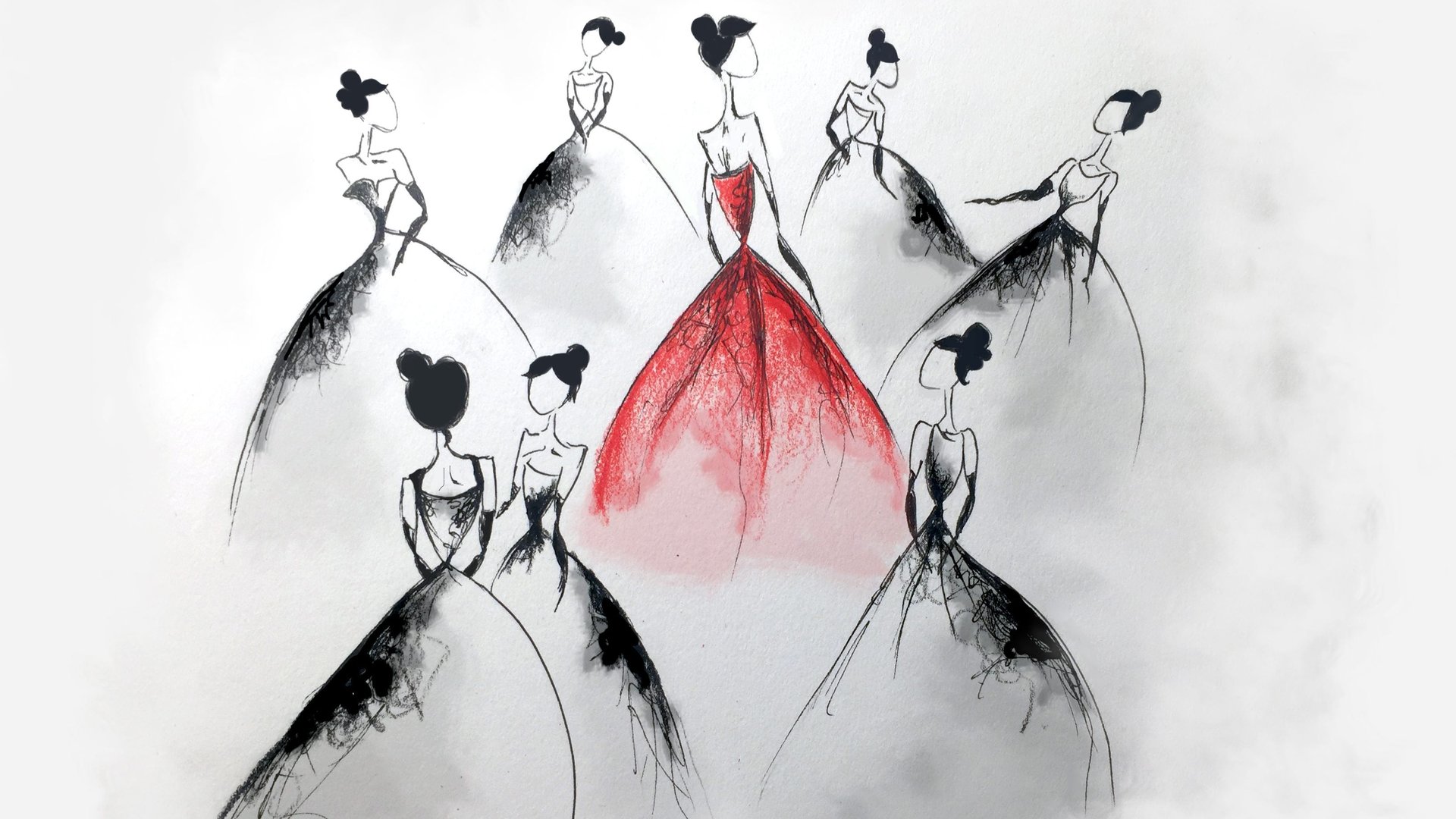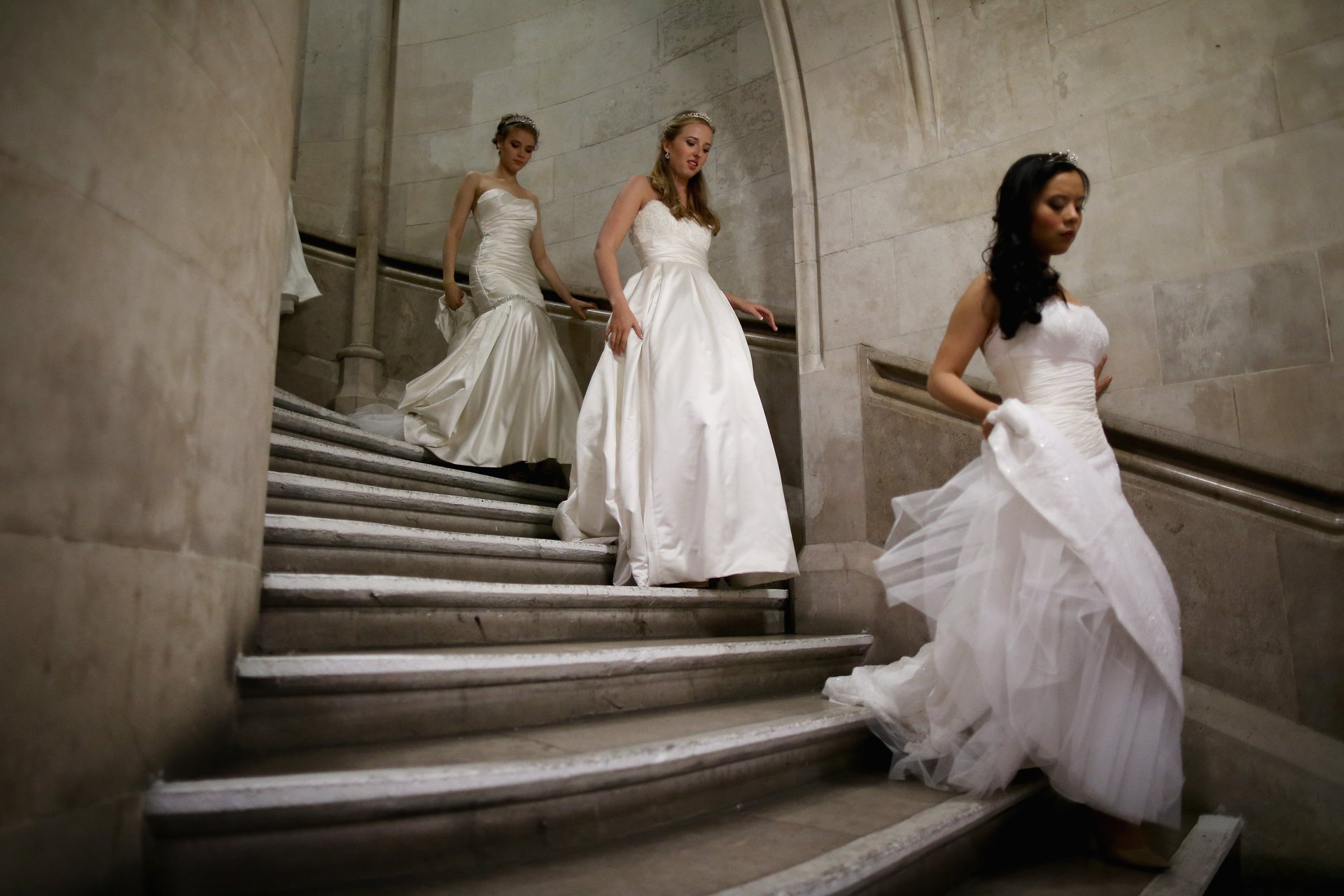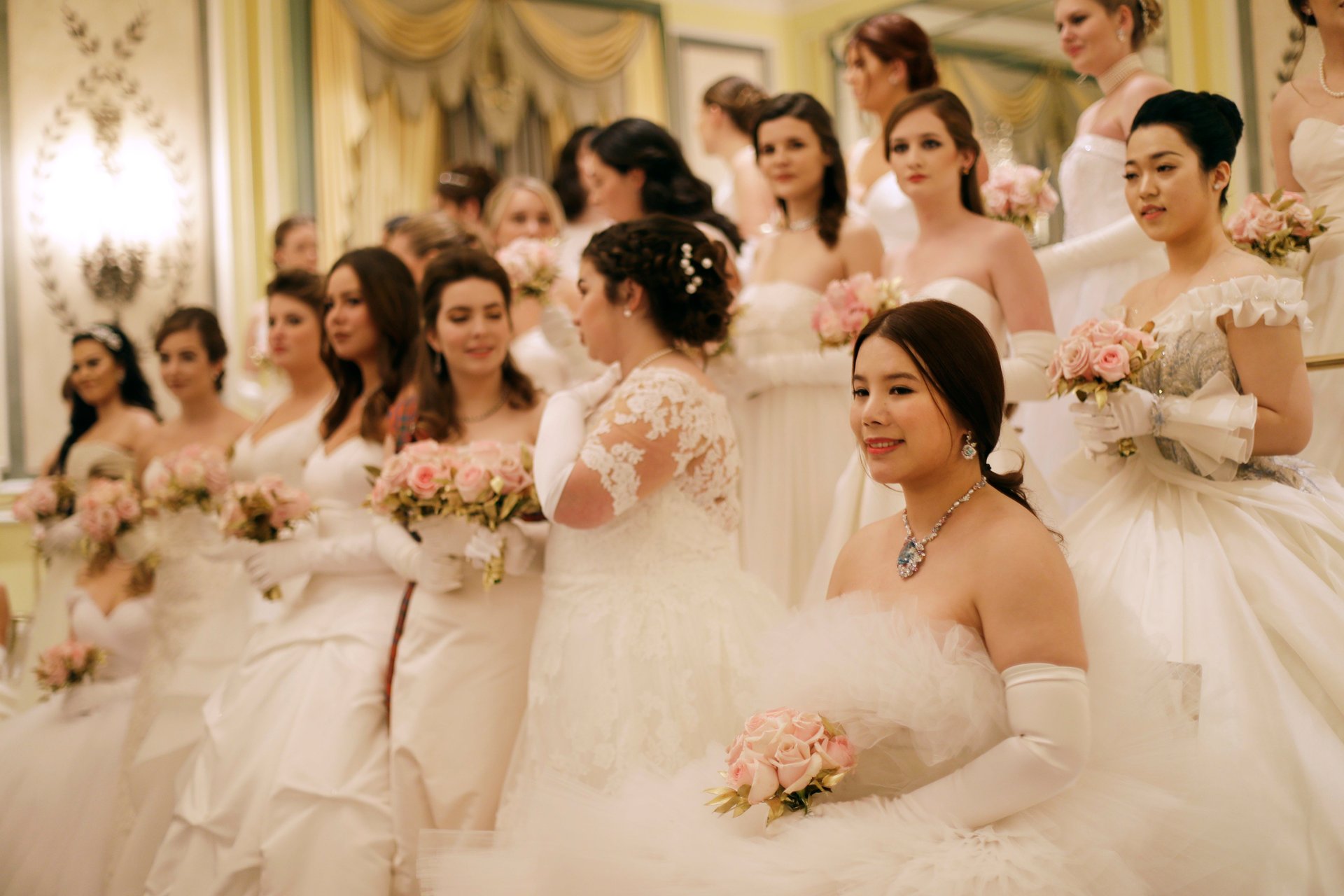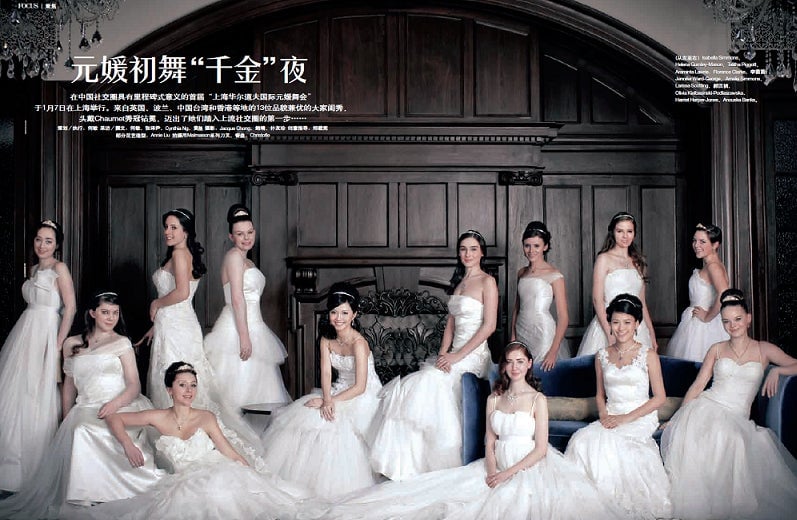I am a daughter of the Chinese Cultural Revolution and I was a European debutante
When my parents were growing up during the Cultural Revolution of China in the 1970s, they were forbidden from doing anything considered “western” bourgeoisie or traditionally Chinese. Mao Zedong’s revolution wanted to destroy the Four Olds: Old Customs, Old Culture, Old Habits, and Old Ideas. And indeed, many precious cultural institutions were destroyed and forgotten.


When my parents were growing up during the Cultural Revolution of China in the 1970s, they were forbidden from doing anything considered “western” bourgeoisie or traditionally Chinese. Mao Zedong’s revolution wanted to destroy the Four Olds: Old Customs, Old Culture, Old Habits, and Old Ideas. And indeed, many precious cultural institutions were destroyed and forgotten.
And yet, in the autumn of 2013, while I was a student at the University of Oxford in England, I found myself engaging in a role that was both traditional and western: I was curtsying in front of Their Graces Duke and Duchess of Somerset as a debutante at Queen Charlotte’s Ball in London. There I was, wearing a white gown borrowed from British designer Caroline Castigliano, whose posh clients include the friends of Duchess of Cambridge. The designer herself had to sew me into the gown because since my fitting a few weeks earlier, I had gained some weight from day drinking at the pubs back at Oxford.

At the ball, which was held at the Royal Courts of Justice in London, I was one of two mainland Chinese debutantes: the other was a student at Imperial College London, and she brought her own gown, designed by Vera Wang, which she had worn the previous year to the equally prestigious International Debutante Ball in New York City. We were two of the first ever Chinese debutantes to be invited to participate in Queen Charlotte’s Ball, but in subsequent years, debutantes have included gambling tycoon Stanley Ho’s daughter Sabrina Ho and fashion investor Wendy Yu, both of whom have been featured in UK society magazine Tatler.
Nearly four years after my own “debut,” this past Thanksgiving weekend heralded Paris’ annual le Bal des Débutantes. Formerly known as the Crillon Ball, the event has been covered in Vanity Fair and Teen Vogue and featured some 20 debutantes from around the world. This year, the only debutante from East Asia was Hong Kong-born Alice Ho, also a daughter of the Macau casino king, who wearing Dior. Last year, there were two debutantes from mainland China.
The debutante balls originally emerged in the 1800s across Europe as a backwards, glossy façade of a meat market for the upper classes: girls of marriageable age, known as “debs,” would be presented in a controlled public setting to suitable bachelors and their families. Neither I nor any of the other debutantes at the 2013 Queen Charlotte’s Ball were there to find husbands, though. We didn’t even have male escorts, called “deb’s delights,” that year. We walked ourselves down the Great Hall while an opera singer warbled from above in the balcony.

While the entire experience may seem antiquated, I actually discovered that being in a debutante ball gives young women—who on a normal day might be self-conscious about their chin acne or sound of their voice—the privilege of unabashedly celebrating themselves for a night. Indeed, the tragedy isn’t that debutante balls exist: it’s that debutante balls only exist for a select few.
From its aristocratic beginnings, the “deb” tradition quickly spread to America from Europe. New York’s International Debutante Ball, for instance, was founded in 1954 and has presented both daughters of American political dynasties and, more recently, wealthy young Chinese women whose parents are willing to pay the $22,000 participation fee (as of 2016). There are also many debutante balls in the American south, such as the Christmas Cotillion in Savannah, Georgia, which was first held in 1817. But these smaller events still mostly cater to local families of influence, rather than welcoming the Chinese, willing to pay for the privilege of looking privileged.
There are currently 319 billionaires and, according to a 2013 Boston Consulting Group report, over 2,378,000 millionaires in mainland China. The sons and daughters of China’s nouveau riche are called fuerdai, aka the “rich second generation.” And while they have the money, what they really want—and don’t have—is social prestige on the world’s stage.
So, to make things easier, the Chinese have brought prestigious events like deb balls to the mainland. From 2012 to 2016, the Shanghai International Debutante Ball, organized in partnership with Queen Charlotte’s Ball, was sponsored by French luxury jewelry brand Chaumet. At the first ball in 2012, there were no actual debutantes from mainland China at the Shanghai ball: “We have a lot of girls now who are from very rich families, but have no manners and don’t behave like ladies,” the organizer, Vivan Chow Wong, told the Telegraph at the time. She also mentioned that she didn’t want any fuerdai linked to government corruption scandals, and would prefer to find Chinese debutantes who come from “private” money—if that even exists in China. (Russia, well known for its own oligarch billionaires of dubious origins, also has several debutante balls of its own.)
The 2012 Chaumet Debutante of the Year was 17-year-old Larissa Scotting from London. The following year, however, Chow discovered her Debutante of the Year from the mainland: Annie Yang Zhou, a graduate of Jacqueline Kennedy Onassis’s alma mater Miss Porter’s School, George Washington University, Columbia University, and the University of Oxford. Today, Zhou works as the Director of External Affairs for the U.S.-China Green Fund.

Like Chow, Zhou also recognized the difficulty in finding “suitable” Chinese women for the Chinese balls. “I believe China’s current society has lost a lot of its tradition and young women should be taught how to behave like ladies.” In 2014, the year after I was in it, Zhou’s deb ambitions went global when she was invited to participate in Queen Charlotte’s Ball.
For young women like Zhou, debutante balls are an opportunity to attract media attention and get practice in the limelight for the ambitious professional and social careers they’re working towards. “My grandfather started the first NGO in China focused on environmental protection and I want to continue his work in implementing social projects with capital and technology,” Zhou said.
The balls are also an opportunity to master the so-called social graces mainland women feel they may need for studying or working in the West. Personally, I was overwhelmed by the table manners—the proper way to eat a pear is with a spoon, for example—that I had to memorize from British etiquette guide Debrett’s in preparation for the ball. I learned to curtsy in a heavy gown, and yet Debrett’s didn’t prepare me for the migraine that comes from wearing a tiara that scrapes against your scalp. Young Chinese women born to Cultural Revolution-era parents are at disadvantage in a world stage that privileges such etiquette habits as a marker of social status.

Which is why, like the debutante ball, the finishing school is also coming to China. “Chinese students come to us and say they want a new image—so we bring in stylists, we take them to get their nails done. They’ll sit through 10 meals in one week,” explained Myka Meier, founder of Beaumont Etiquette, the Plaza Hotel’s etiquette program, which will open in Shanghai next year. Finish Beaumont’s course, Meier says, and “you can go to Buckingham Palace and feel comfortable—I will make sure of that.” It’s not hard to be a debutante, Meier continues: “You just need someone to teach you.”
She then added that many of her private lesson customers, from Dubai to London, are aspiring debs—with lessons geared towards this goal. “We teach ballroom dancing, and we help them pick out different elements of their wardrobe when they’re interviewing for these competitive balls,” she explained. I breathed a sigh of relief when she said this. Becoming a modern-day debutante, it turns out, is an esoteric commitment that almost everyone—not just a daughter of the Chinese Cultural Revolution—finds confusing.